Panel aims to distinguish hype from hope in dementia research
Researchers share tips for audience of 325 at event hosted by Alzheimer society
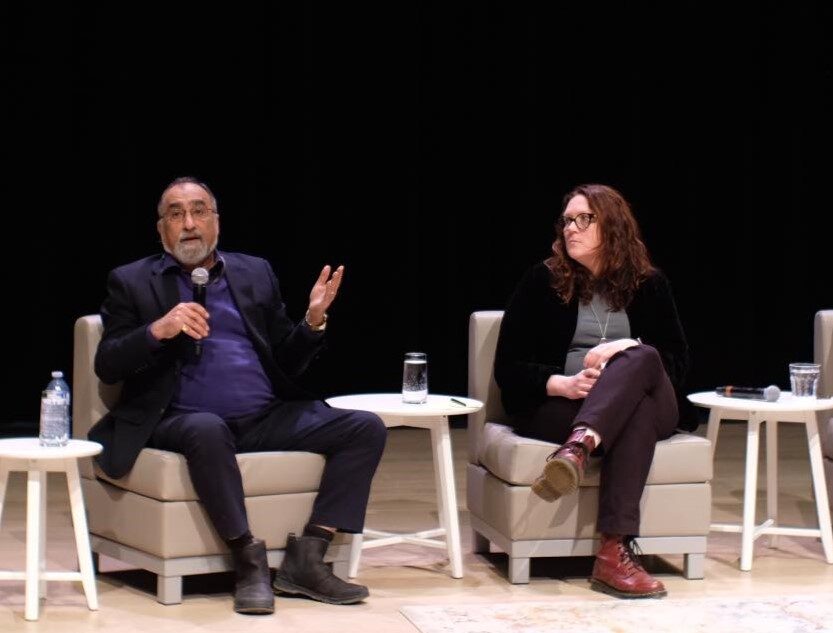
caption
Behavioural neurologist Sultan Darvesh speaks, while Shanna Trenaman, an assistant professor at Dalhousie, looks on, at Alzheimer Society of Nova Scotia's Hype vs. Hope event.Local dementia researchers urged a crowd on Tuesday night to be cautious about the hype around some Alzheimer’s research.
People can sometimes be overly optimistic about the potential of new treatments. That’s why the Alzheimer Society of Nova Scotia (ASNS) hosted an event on Tuesday evening aiming to empower people with the skills to navigate dementia research.
Marco Redden is the society’s research and evaluation lead. He said the event, titled Hype vs. Hope in Dementia Research, was a chance for experts to shed light on nuanced issues “that might seem black and white.”
He said people are looking for information they can trust.
“Dementia is becoming more of a public health issue and we’re seeing a lot of companies that are looking to profit as well — to find information that isn’t trying to sell them something is also a challenge for folks.”
Research findings might appear to be more promising when reported but are much less so when reading the actual study, he said. However, evidence-based and reliable research is often beyond the public’s reach, behind a paywall.
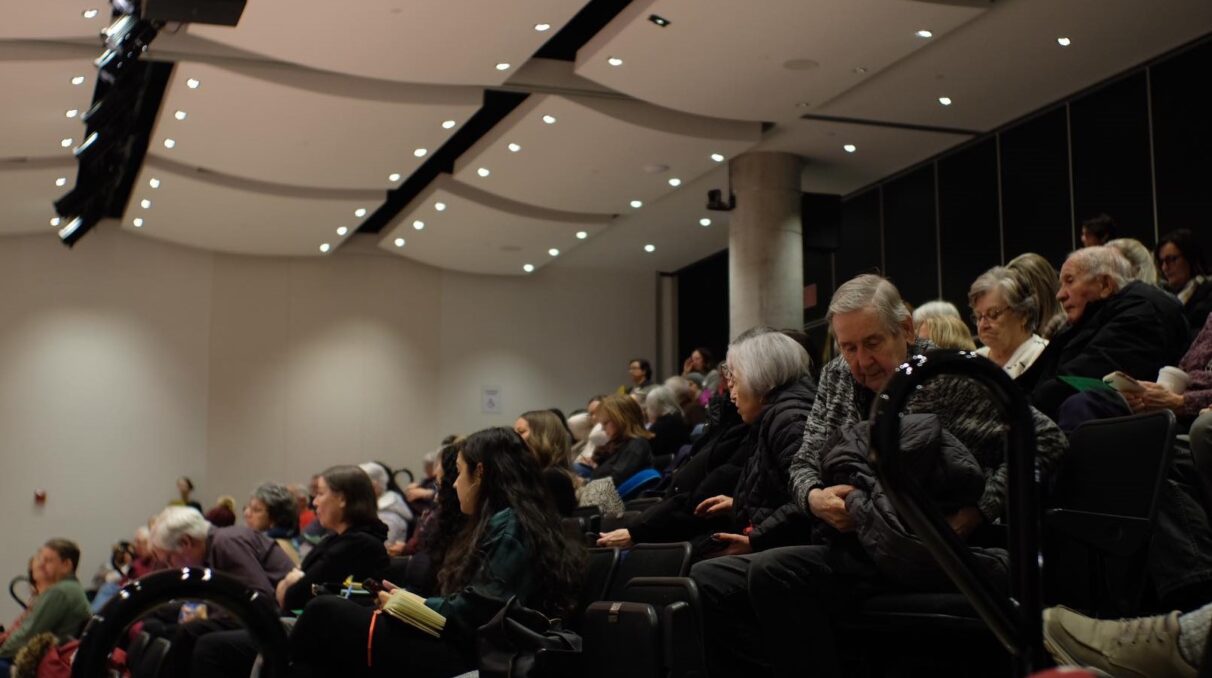
caption
325 people attended Tuesday’s event, which was also streamed online.Panellist Sultan Darvesh, a behavioural neurologist and professor at Dalhousie University, cited research currently in the news that suggests certain proteins such as amyloid and tau can help identify Alzheimer’s disease before symptoms are visible.
But he explained that such tests don’t necessarily mean a person actually has Alzheimer’s and can cause unnecessary stress in their life if they misunderstand its meaning.
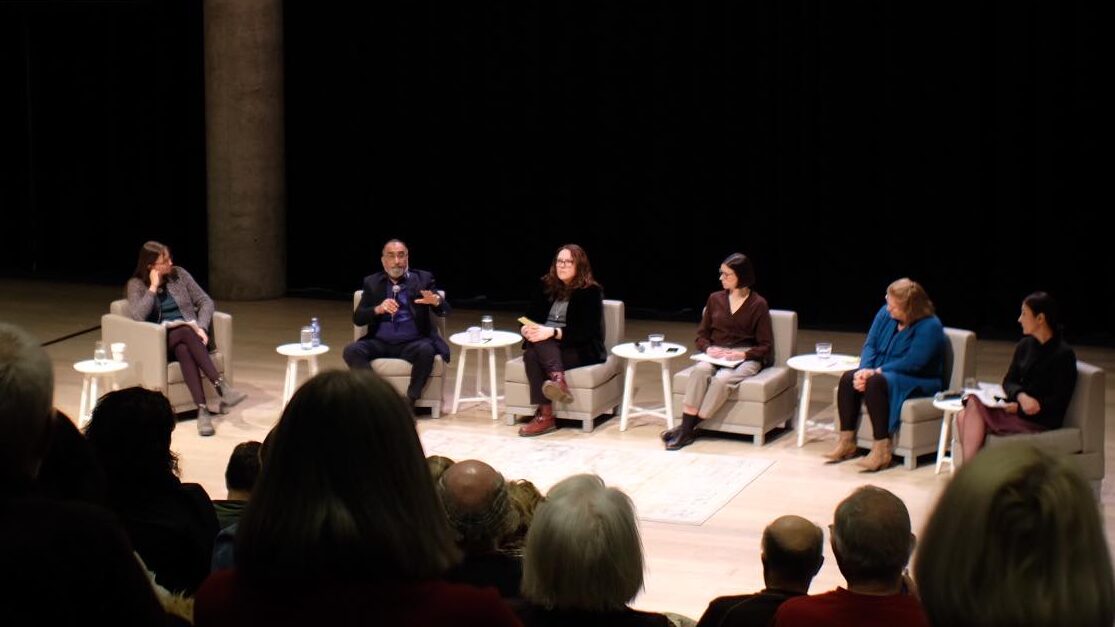
caption
Melissa Andrew, Sultan Darvesh, Shanna Trenaman, Elaine Moody, Janice M. Keefe, and Katie Aubrecht were the six panellists at the Hype vs. Hope event.Melissa Andrew, a professor of geriatric medicine at Dalhousie University, introduced a useful acronym to help people assess the reliability of information they encounter. The acronym CRAAP encourages people to think about the information’s currency, relevance, authority, accuracy, and purpose.
Sandra Gillis, whose husband has dementia, attended the event and says it gave her lots to think about. She’s in the process of getting home care for her husband and says learning about long-term options were of particular interest to her.
“It’s very hard on the head to be a caregiver … when you have them 24/7. It’s overwhelming” she said.
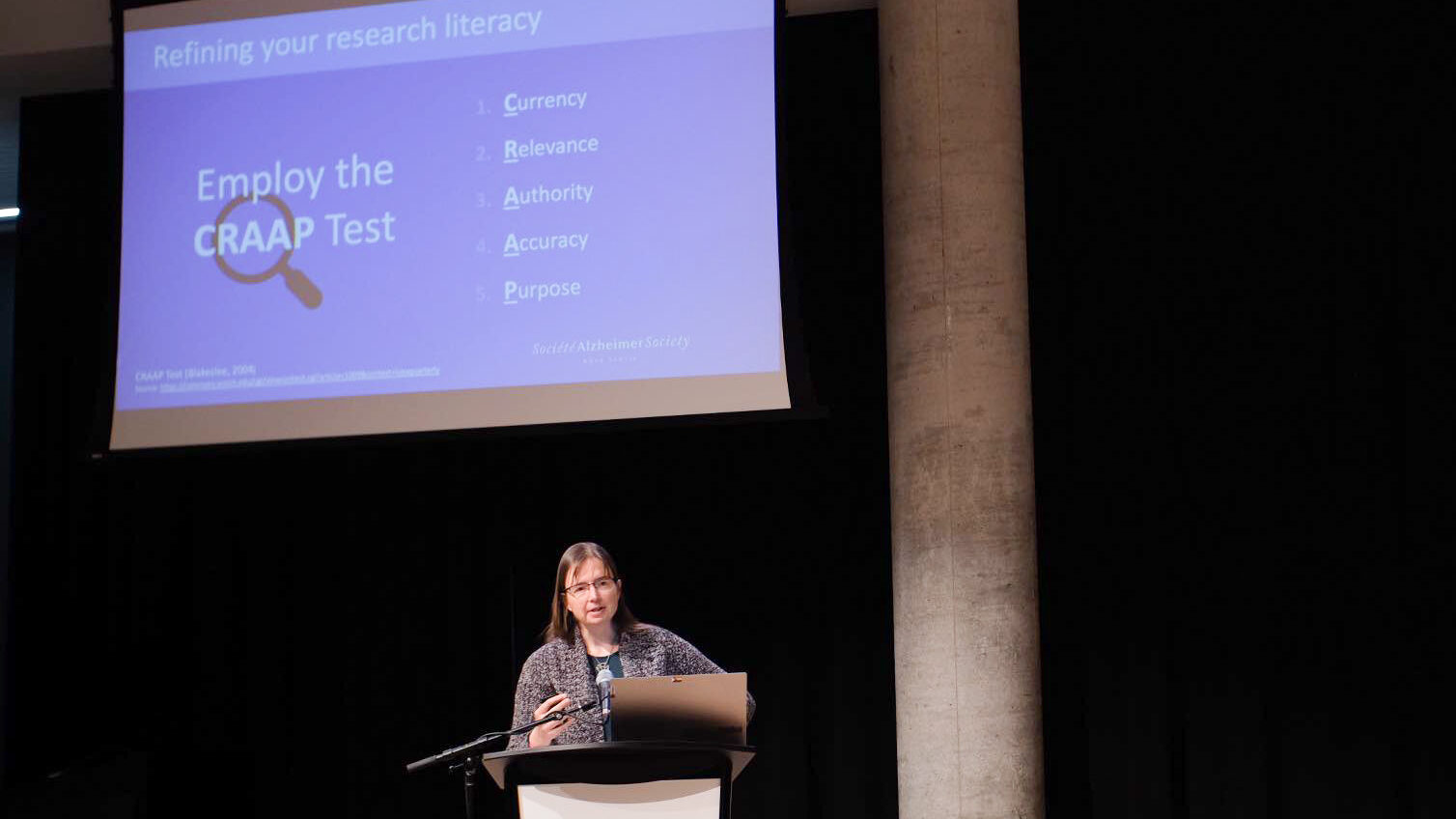
caption
Melissa Andrew talks about the CRAAP acronym, which can help evaluate the reliability of dementia researchWhile discussing research she was hopeful about, Katie Aubrecht, an associate professor at Saint Francis Xavier University, called for better community and long-term care.
“We assume that long-term care is just there, but the reality is different,” she said. As an example, she said, people are often stuck in hospitals while they wait for a spot in long-term care homes.
Aubrecht said better care is attainable if we simply take a co-ordinated approach to it.
Shukri Salah happened upon the event while visiting the Halifax Central Library. During the pandemic, she worked at a long-term care home as a crisis relief worker.
“That was my first time really being in close proximity to residents (with) dementia,” she said. The event piqued her interest as an opportunity to learn about the latest developments in dementia research.
She said she left knowing more about dementia-friendly communities around the world, and how they could be implemented here in Nova Scotia.
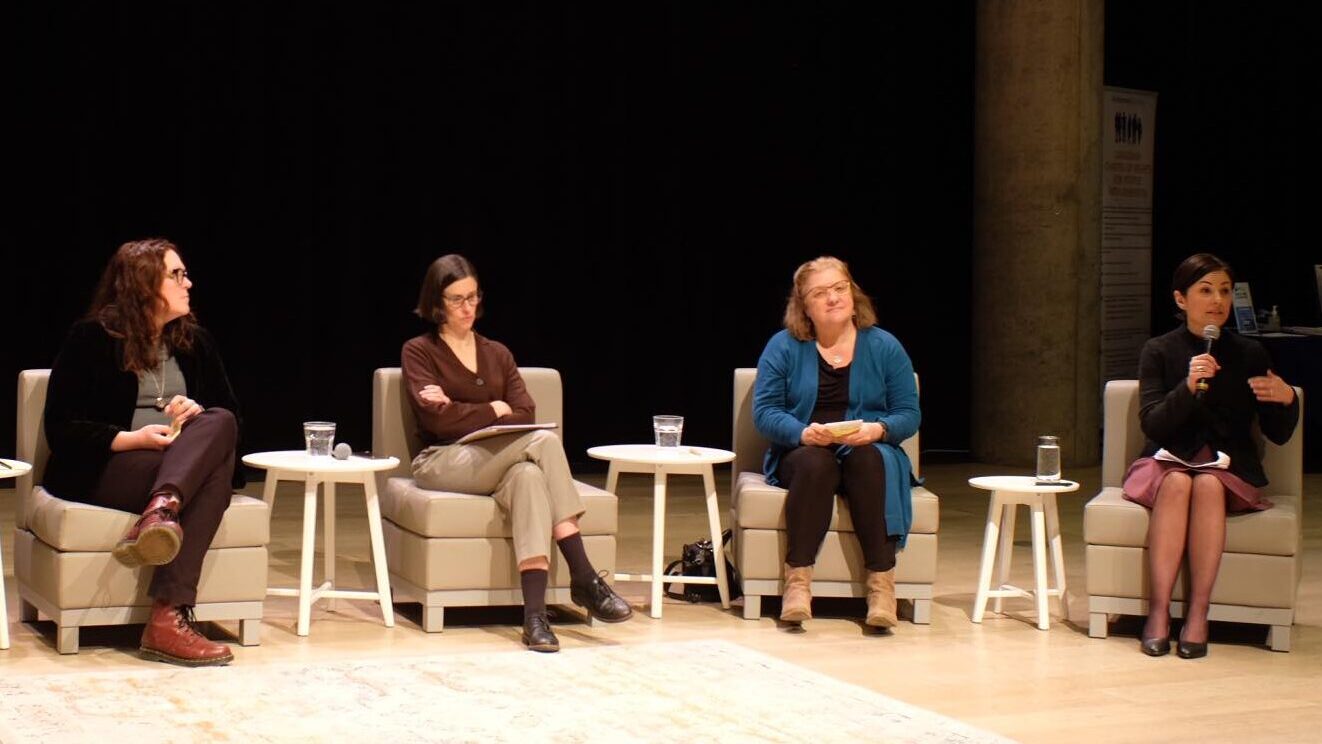
caption
Katie Aubrecht, right, said that better long-term and community care options are attainable if we take a co-ordinated approach towards it.Last year, the Alzheimer’s society launched its Dementia-Friendly Communities initiative. The society hopes Nova Scotia can become a place where aging doesn’t mean you can’t be an active and engaging member of your community.
“People with dementia can be vibrant,” said society CEO John Britton. “They can live very long and productive lives.”
However, he said that can’t happen if we don’t first acknowledge that dementia exists. By creating opportunities for open dialogue, Britton hopes we can “bust some of the stigma” associated with dementia and make room to identify solutions.
Britton said 50 per cent of the society’s funding is raised by the charity and dedicated to “anything new or novel” they want to explore. That’s almost $2 million, he said, that goes toward innovative programming such as dementia-friendly communities.
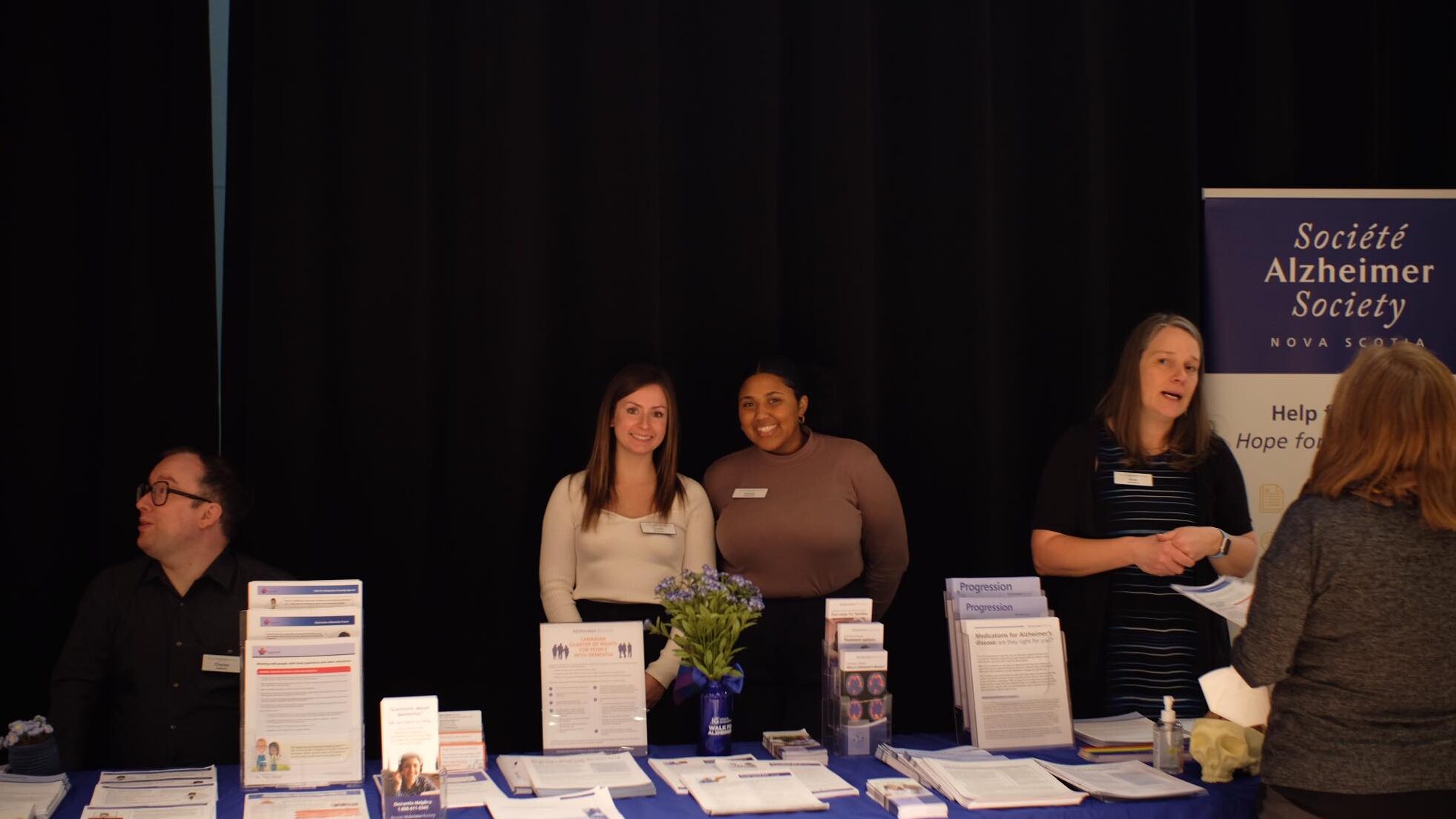
caption
Shelby Riley and Leslie Coleman help at an information booth before the panel begins.Marco Redden encourages people to “take a breath anytime you read something sensational,” and notes that the ASNS is always a phone call away if you need help identifying reliable information.
About the author
Andie Mollins
Andie is from Shediac, a small but lively beach town in New Brunswick. She studied history and sociology at the University of New Brunswick and...
